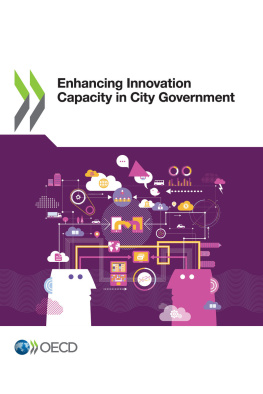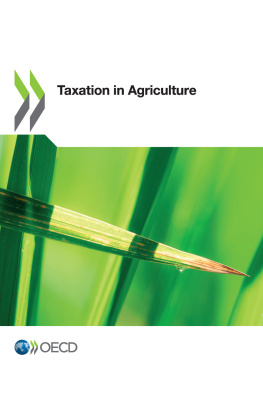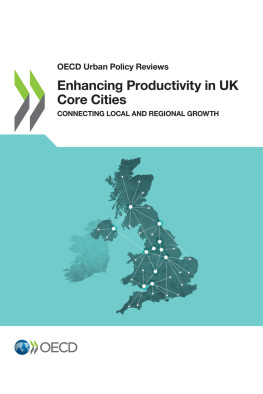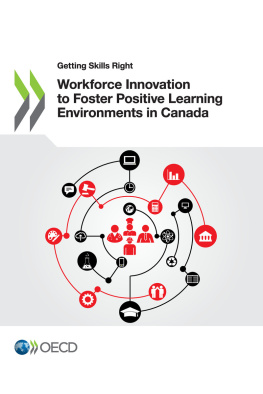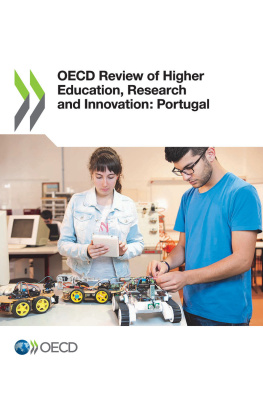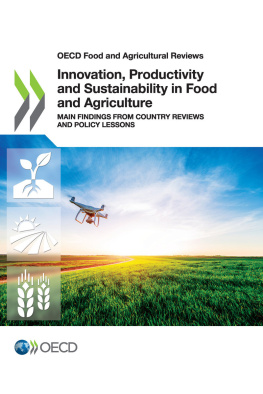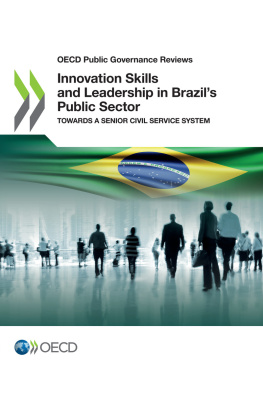OECD - Enhancing Innovation Capacity in City Government
Here you can read online OECD - Enhancing Innovation Capacity in City Government full text of the book (entire story) in english for free. Download pdf and epub, get meaning, cover and reviews about this ebook. year: 2019, publisher: OECD Publishing, genre: Politics. Description of the work, (preface) as well as reviews are available. Best literature library LitArk.com created for fans of good reading and offers a wide selection of genres:
Romance novel
Science fiction
Adventure
Detective
Science
History
Home and family
Prose
Art
Politics
Computer
Non-fiction
Religion
Business
Children
Humor
Choose a favorite category and find really read worthwhile books. Enjoy immersion in the world of imagination, feel the emotions of the characters or learn something new for yourself, make an fascinating discovery.
Enhancing Innovation Capacity in City Government: summary, description and annotation
We offer to read an annotation, description, summary or preface (depends on what the author of the book "Enhancing Innovation Capacity in City Government" wrote himself). If you haven't found the necessary information about the book — write in the comments, we will try to find it.
OECD: author's other books
Who wrote Enhancing Innovation Capacity in City Government? Find out the surname, the name of the author of the book and a list of all author's works by series.
Enhancing Innovation Capacity in City Government — read online for free the complete book (whole text) full work
Below is the text of the book, divided by pages. System saving the place of the last page read, allows you to conveniently read the book "Enhancing Innovation Capacity in City Government" online for free, without having to search again every time where you left off. Put a bookmark, and you can go to the page where you finished reading at any time.
Font size:
Interval:
Bookmark:
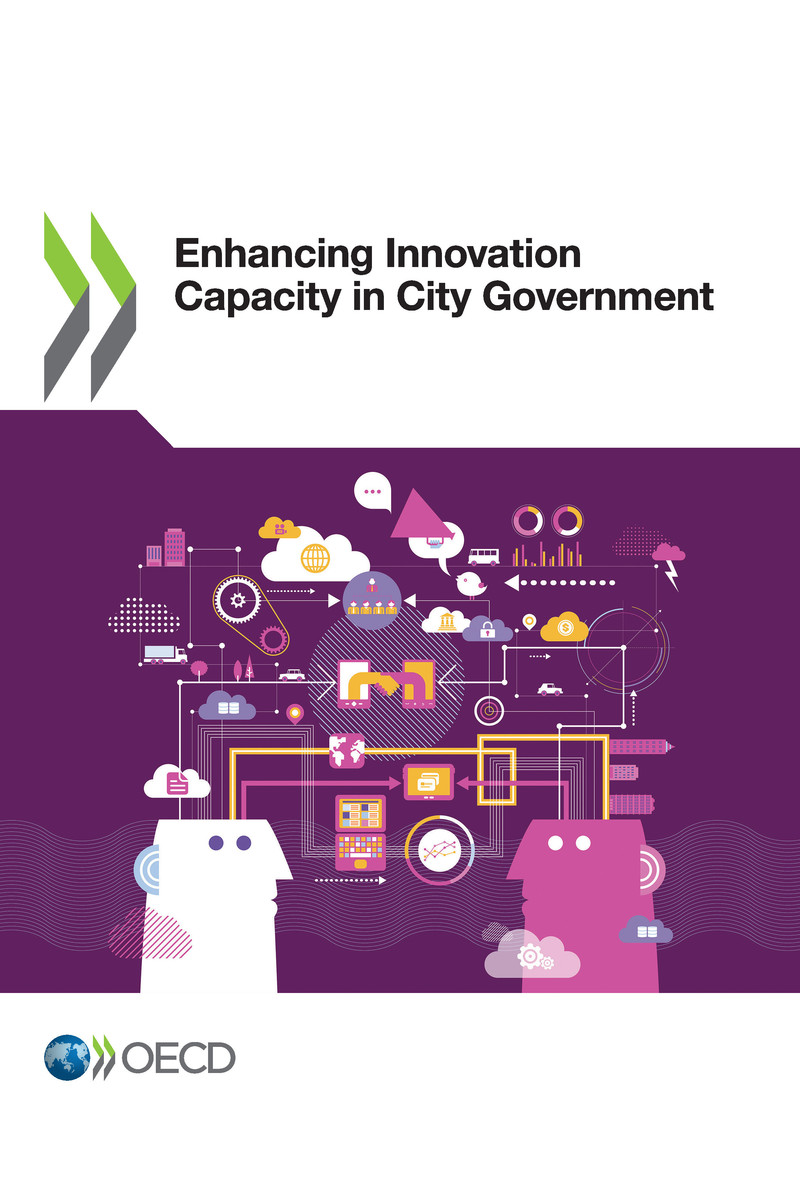
OECD (2019), Enhancing Innovation Capacity in City Government , OECD Publishing, Paris, https://doi.org/10.1787/f10c96e5-en .
Across the world, cities, where most people work and live, are displaying tremendous innovation potential in local public administrations, exploring new and different solutions to achieve goals related to residents well-being. These efforts ultimately target poverty reduction, public health outcomes, expanded education access, tailored services for senior citizens, new revenue generation, local economic productivity and competitiveness, among others. Municipalities are taking a number of steps to reach their goals using local public sector innovation, through staffing creating roles such as chief innovation officers and establishing innovation teams, developing innovation goals, strategies and plans to direct their new efforts. They also establish partnerships with academia, the private sector, and other institutions such as international organisations and philanthropic foundations, to improve their data analysis and evidence-based decision-making.
In terms of city operations and functions, creating an innovation team and engaging in innovation activities is still a relatively new approach. In many countries cities are still building up their knowledge base to co-ordinate and assemble the right organisational, financial and human resource infrastructure to support their efforts. There is therefore still a lot to learn and understand about innovation capacity, especially at the local level. Building on their respective long-standing cooperation with Mayors and local governments, the OECD and Bloomberg Philanthropies have joined forces over a year and a half long policy dialogue to learn from practical experience of close to one hundred Mayors, city officials, and stakeholders from around the world in boosting local public sector innovation.
The report Enhancing Innovation Capacity in City Government seeks to bring better understanding of the different methods and forms in which local public sector innovation capacity is taking shape within city administrations. Building on a survey carried out by the OECD and Bloomberg Philanthropies across 89 cities from around the world and of all sizes with populations of under 50,000 to over 9 million (Annex C), as well as extensive and thorough literature review from leading work on public sector innovation, the report provides evidence and guidance on how cities build innovation capacity to respond to residents present and future needs. Divided in three sections, the report proposes an analytical framework and empirical approach for understanding innovation capacity in cities, and assesses city governments innovation goals, strategies, funding, staffing and structure, data-use and outcomes monitoring and evaluation. It concludes with a checklist for action on considerations for enhancing innovation capacity in city governments. To provide a deeper understanding of the range of capacity configurations within cities, individual city snapshot profiles were created providing systematic overview of the capacity inputs in cities.
Amongst others, the report shows that establishing a culture of innovation whereby municipal staff are encouraged to experiment, take risks and learn from failure is key enabler and driver to innovation; and so are external partnerships that can supplement or help develop internal capacity, for example, to assist in piloting and evaluating a new programme. Finally, committed and supportive leadership can signal the priority level for the citys innovation efforts throughout the administration and encourage engagement at all levels.
The findings of this report were presented and discussed with different constituencies, including representatives of national and local governments and experts, in many instances, such as: the Citylab Detroit (October 2018), the OECD Working Party for Urban Policy (November 2018) and the Fourth Meeting of OECD Champion Mayors for Inclusive Growth (March 2019). The results also benefited from direct consultation with city innovation staff, including the review and fact-checking of the individual city snapshots created for all respondents based on their survey responses. This ensured the information accurately reflected the citys innovation framework. Additionally, a draft of the report was shared with respondents before it was finalised, giving cities the opportunity to comment and provide feedback throughout the policy dialogue process.
By combining data, policy expertise and dialogue with city leaders and innovation officers, the OECD and Bloomberg Philanthropies undertook the task to assess why, how and where cities are developing their capacity to innovate. This report has led to a deeper comprehension of the different factors that assist in innovation in city governments, as well as an understanding of what local administrations are trying to achieve through their innovation efforts. This project has been conceived in two phases, the first phase consisted of developing a comprehensive survey and analytical framework to understand innovation capacity in cities, the second phase will dive deeper into data use in cities, and seeks to understand how the role of data and innovation capacity efforts and investments in cities impact resident well-being outcomes.
This report was prepared by the OECD Centre for Entrepreneurship, SMEs, Regions and Cities led by Lamia Kamal-Chaoui, Director, in collaboration and with the support of Bloomberg Philanthropies. Special thanks are extended to James Anderson, Head of the Government Innovation programs at Bloomberg Philanthropies.
The policy dialogue and preparation of the report were co-ordinated by Sena Segbedzi, Co-ordinator of the OECD Champion Mayors for Inclusive Growth Initiative under the supervision of Aziza Akhmouch, Head of the Cities, Urban Policies and Sustainable Development Division, OECD. The report was drafted by a core OECD team composed of Oscar Huerta Melchor (main author), Natalia Altman, Laura Valds, Vu Tran and Sam Whittlesey. Special thanks are herein conveyed to Soo-Jin Kim for her valuable comments during the drafting process, as well as to Marissa Plouin for her initial co-ordination and launch of the project, and Hyung-Tae Kim and Stefan Norgaard for the design, extension and processing of the survey. Thanks are also conveyed to Marco Daglio, Debra Mountford and Oriana Romano (OECD) for their comments on earlier drafts.
Font size:
Interval:
Bookmark:
Similar books «Enhancing Innovation Capacity in City Government»
Look at similar books to Enhancing Innovation Capacity in City Government. We have selected literature similar in name and meaning in the hope of providing readers with more options to find new, interesting, not yet read works.
Discussion, reviews of the book Enhancing Innovation Capacity in City Government and just readers' own opinions. Leave your comments, write what you think about the work, its meaning or the main characters. Specify what exactly you liked and what you didn't like, and why you think so.

